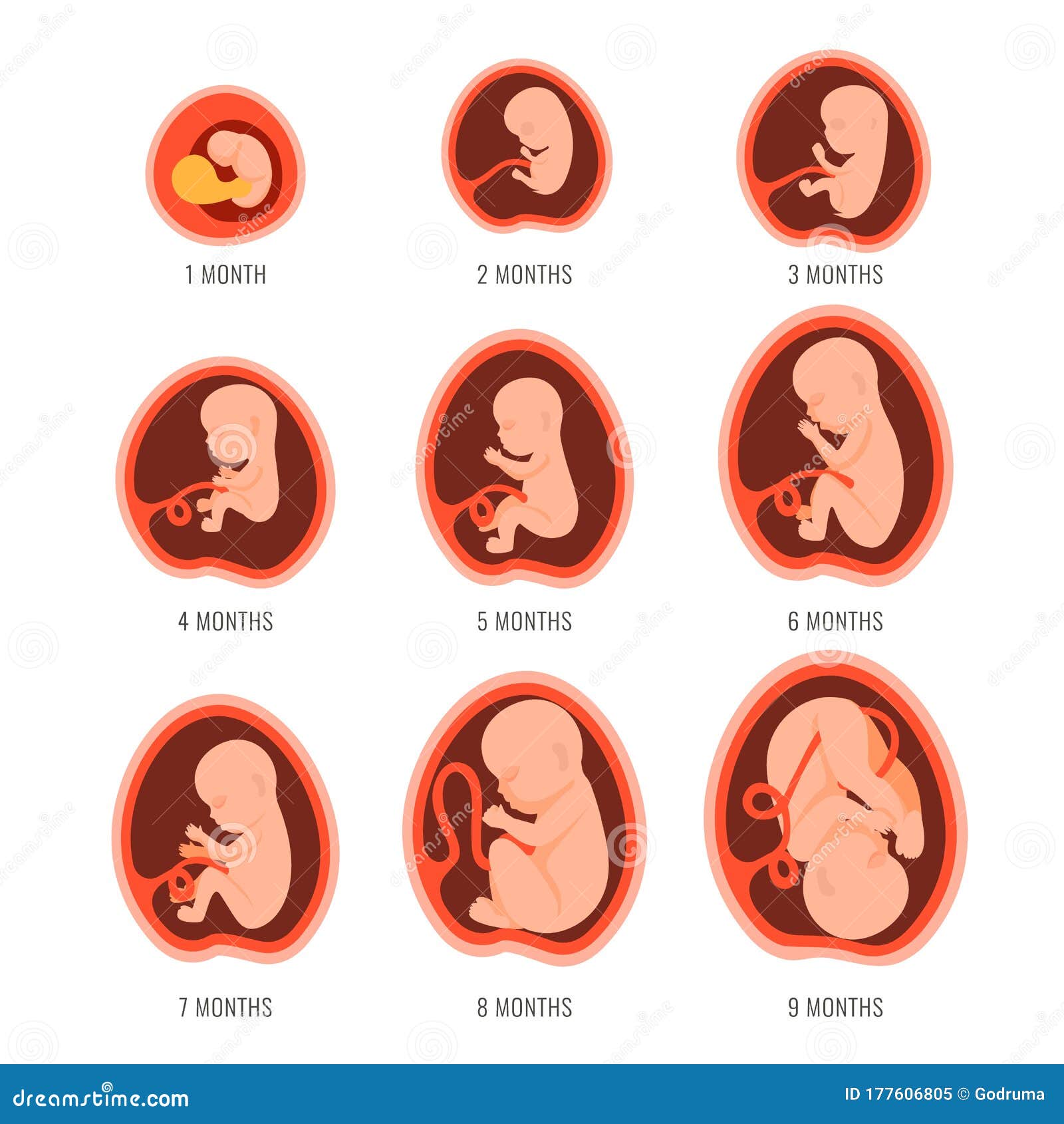During pregnancy, the development of a baby is a fascinating and complex process. From conception to birth, a lot happens in just nine months. The fetal development is divided into different stages, each with its own unique characteristics. In this article, we will discuss the fetal development month by month.
Table of Contents
Month 1: Conception to 4 Weeks

In the first month of pregnancy, the fertilized egg implants itself in the uterus lining. The embryo begins to form, and the heart, brain, and spinal cord start to develop. The placenta, which is responsible for the exchange of nutrients and waste products between the mother and the baby, also starts to form.
Month 2: 5 to 8 Weeks

During the second month, the baby’s facial features become more defined, and the arms and legs start to grow. The baby’s heart is fully formed and starts to beat. The baby’s sex organs also start to develop, but it is still too early to determine the gender.
Month 3: 9 to 12 Weeks

In the third month, the baby’s organs continue to develop, and the fingers and toes start to separate. The baby’s movements become more coordinated, and the mother may feel the baby’s first movements. The baby’s gender can be determined through ultrasound.
Month 4: 13 to 16 Weeks

During the fourth month, the baby’s skin becomes less transparent, and the body starts to develop fat. The baby’s eyes move to the front of the face, and the ears move to the side of the head. The mother may also feel the baby’s first kicks.
Month 5: 17 to 20 Weeks
In the fifth month, the baby’s hair and nails start to grow, and the baby’s skin becomes less wrinkled. The baby’s sensory organs continue to develop, and the baby can hear the mother’s voice and other sounds outside of the womb. The mother may also feel the baby’s hiccups.
Month 6: 21 to 24 Weeks
During the sixth month, the baby’s lungs start to produce surfactant, a substance that helps the lungs expand and contract. The baby’s eyes start to open, and the baby can see light and dark. The baby’s movements become more frequent and stronger.
Month 7: 25 to 28 Weeks

In the seventh month, the baby’s brain continues to develop rapidly, and the baby can dream. The baby’s skin becomes smoother, and the baby’s fat layers continue to increase. The baby’s movements become more coordinated, and the baby may respond to touch and sound.
Month 8: 29 to 32 Weeks
During the eighth month, the baby’s organs are fully developed, and the baby starts to become more active. The baby’s eyes become more sensitive to light, and the baby may develop a sleep-wake cycle. The baby’s head turns downward in preparation for birth.
Month 9: 33 to 40 Weeks

In the final month of pregnancy, the baby’s lungs are fully mature, and the baby’s antibodies are transferred from the mother to the baby. The baby’s head becomes engaged in the pelvis, and the baby is ready for birth.
Overall, fetal development is a complex and miraculous process that takes place over nine months. It is important for expectant mothers to take care of themselves and their babies during this time.
FAQ
1. How does fetal development occur?
Fetal development occurs as a result of a complex interplay between genetic and environmental factors.
2. What factors can affect fetal development?
Factors that can affect fetal development include maternal health, nutrition, and exposure to toxins.
3. What is the most critical period of fetal development?
The most critical period of fetal development is during the first trimester when the major organs and structures are forming.
4. How can I ensure the healthy development of my baby during pregnancy?
You can ensure the healthy development of your baby during pregnancy by eating a balanced diet, getting regular exercise, and avoiding harmful substances.
5. When can I expect my baby to be born?
The due date is usually calculated based on the first day of the mother’s last menstrual period and is typically around 40 weeks from that date.
